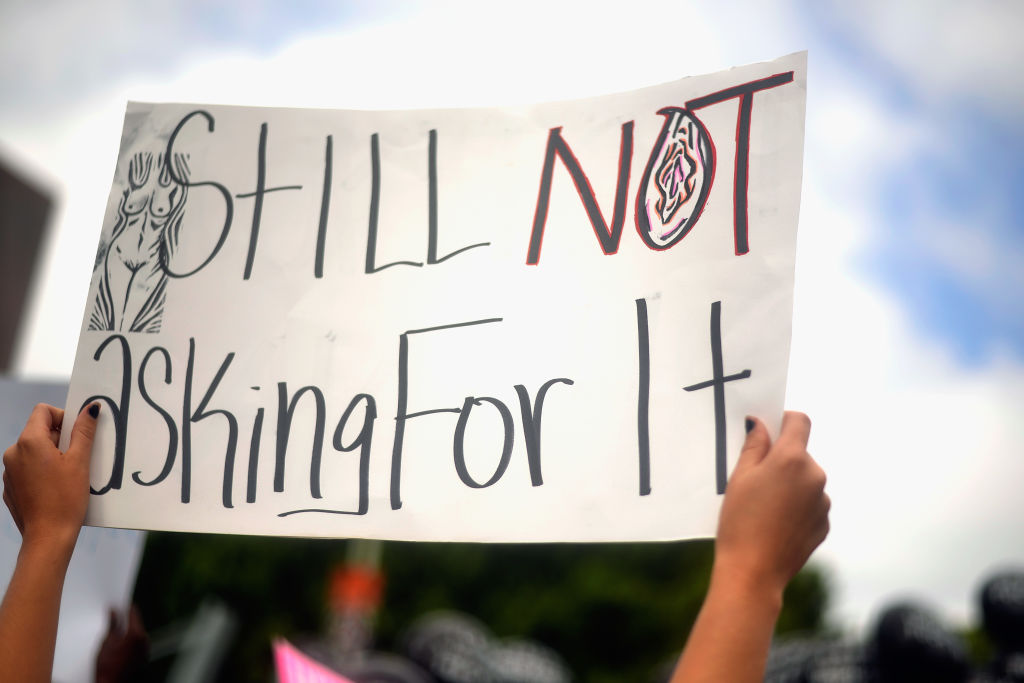They may have perfected the sexy selfie and a nonchalance about internet porn but millennials are just not that into sex. The guilty secret behind today’s swipe-right hookup culture is not promiscuity but abstinence. Research out this week suggests that one in eight 26-year-olds have never had sex, up from one in 20 a generation ago. According to Steve McKay, professor in social research at Lincoln University, the true figure may be even higher; if those who refused to answer the question were also virgins then the number of abstainers rises to 16.4 per cent, or one in six. Last year’s National Survey of Sexual Attitudes and Lifestyles revealed a similar story, showing that 23 per cent of 16-24 year-olds had not had sex in the past year.
Bemused boomers and generation X’ers have been struggling to explain exactly why millennials are so reluctant to have sex. Some have pointed to compulsive smartphone use, with social media and video games offering permanently accessible virtual distractions. The ubiquity of online pornography may also act to suppress, rather than enhance, the desire for a far more complicated real life relationship. Others argue it’s poverty that’s the passion-killer. Today’s young adults are less likely to be married, less likely to have secure employment and more likely to live in the parental home than in the past. Millennials are, apparently, just too poor and too stressed-out to have time or energy left for sex.
But these are excuses rather than explanations. For previous generations, challenging religious taboos and rebelling against the strictures of parents and teachers lent sex an illicit excitement. If today’s young adults wanted to have sex badly enough they would turn their phones off. Indeed, they’d be in more of a rush to start an independent life of their own rather than putting up with the scrutiny of the parental home. It’s not that young people are too busy online to have sex, rather they are seeking out virtual distractions in order to avoid real life interactions. Millennials do not have lives that are so stressful they can’t even contemplate having sex; rather it is sex itself they find stressful and confusing.
It’s little wonder today’s young adults think this way. After all, they’ve spent countless childhood hours sitting through sex and relationships classes. They’ve been taught repeatedly of the many dangers associated with having sex. They’ve made posters, taken part in role play activities and given presentations to warn others of all the risks involved. They’ve imbibed the message that the dangers of sex go far beyond unwanted pregnancy and sexually transmitted infections and that they need to guard against the psychological risks of entering into a relationship: regret, disappointment, confusion, embarrassment, guilt and threats to their self-esteem.
For Gen X’ers, the logic of ‘no means no’ was unambiguous: if someone didn’t want to have sex they would say no. Proceeding regardless was rape. Fast-forward twenty years and getting someone into bed is far more complicated. Universities now routinely usher fresh-faced students into compulsory consent classes where they are taught that sex is great as long as certain rituals are scrupulously observed beforehand. Chief among them is the formal negotiation process whereby the eager couple must set passion aside and set out in advance exactly who will do what to whom, where, when and for how long.
Fortunately, for the tongue-tied, there are now consent apps to upload. Just like doing an online grocery shop, you and your partner can lovingly click through an array of scenarios and select exactly which ones you’re up for. Some contain questions about how much alcohol has been consumed and – in the unlikely event that something unexpected occurs – have an inbuilt a panic button allowing consent to be withdrawn in the heat of the moment.
Classes and apps kill passion dead. They turn having sex into a complex bureaucratic procedure. Selecting preferred positions from an online menu removes spontaneity, passion and excitement. Sex is supposed to be made up as you go along. But this requires something that millennials had stolen from them during all the safe sex classes and consent workshops they’ve attended: trust. Trust lets people make themselves vulnerable and take risks with another person.
But today’s young adults have been taught never to trust anyone enough to show vulnerability. They’ve been taught that any sexual encounter that doesn’t come up to the standards set out in consent classes is rape. Young women come to believe they are highly likely to be victims of a sexual assault. This is a far more successful strategy for dissuading young people from having sex than any amount of preaching abstinence.
Sadly, for many young people today sex has become so overly-complicated and imbued with risk that they have become scared of ever attempting it. If young people are to enjoy sex and forge intimate relationships with one another they need to be freed from this narrative of risk. For older generations, this means backing off and leaving millennials to work things out for themselves, even if they make some mistakes along the way. After all, this is what people have done since the beginning of time.
Joanna Williams is the author of Women vs Feminism, Why We All Need Liberating from the Gender Wars







Comments